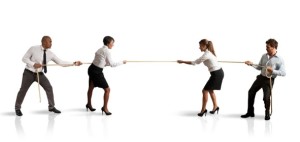
When Your Strengths at Work
Turn Into Weaknesses
I’ve been reading and blogging about how to develop your strengths at work, and as a manager, how we need to focus on developing the

I’ve been reading and blogging about how to develop your strengths at work, and as a manager, how we need to focus on developing the

Ask anyone who’s just had a performance review what they’re working on improving this quarter, and I’ll bet they’ll tell you precisely what deficits they

Most of us have a poor sense of our talents and strengths yet are acutely aware of our weaknesses and flaws. Why is that? I’ll

Knowing what are your strengths at work is key to good management. In my previous posts, I’ve been sharing with you the results of a

Organizations usually fail at selecting the right people with management talent. A report by Amy Adkins in the Gallup Business Journal (April 13, 2015) suggests

When it comes to making successful leadership decisions, what you see is rarely all there is. Harvard Business School Professor Max Bazerman writes about this

As a leader, your career depends on making smart decisions: From what you say, to what you do, to how you delegate and use resources.

I’ve been writing about how managers can avoid under managing by more effective management conversations: highly structured, high substance conversations. How can we describe how

If the majority of busy managers aren’t sufficiently engaged in effective conversations about basic management tenets, what are they doing? None of the managers I

As a manager, how do you prevent under managing, and still empower your people? I’ve been posting about what’s called the “Under Management Epidemic,” here

Join Nancy as she talks with Meredith Hirsh, her client, on her podcast, Working Healthcare. Learn when to seek a therapist versus a coach and

Listening may be the most difficult skill to master when communicating effectively. But master it, we can! The non-verbal part of communicating is the most

How do you test your leadership insights? “Innovation is seeing what everybody has seen and thinking what nobody has thought.” ~ Dr. Albert, Szent-

An organization’s health is only as sound as its leader’s decisions. Some companies prosper from wise leadership directions, while others struggle after flawed choices—choices that







